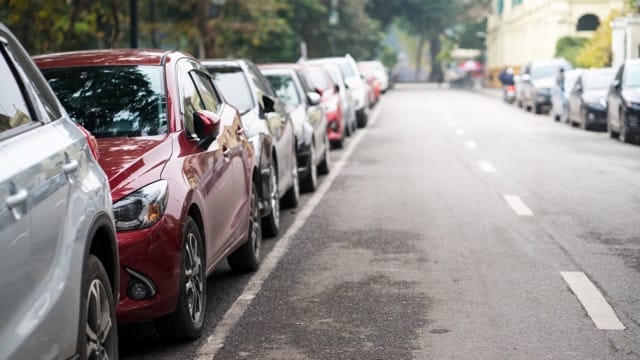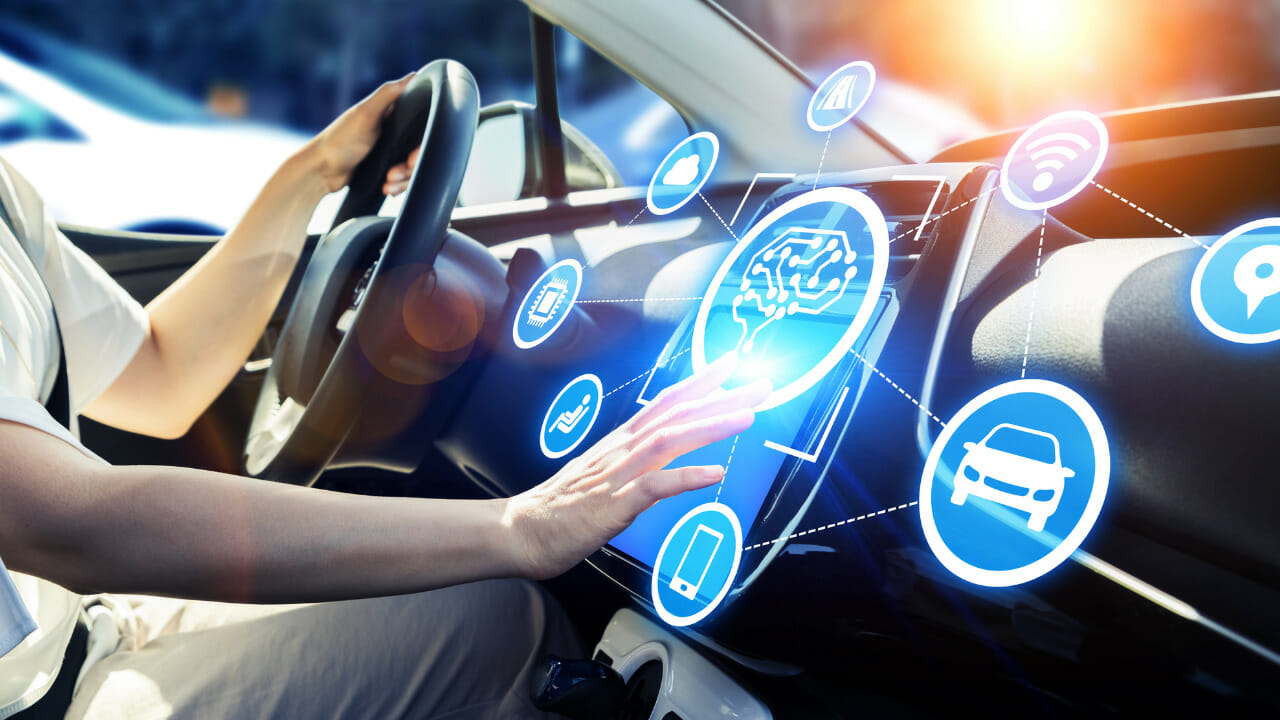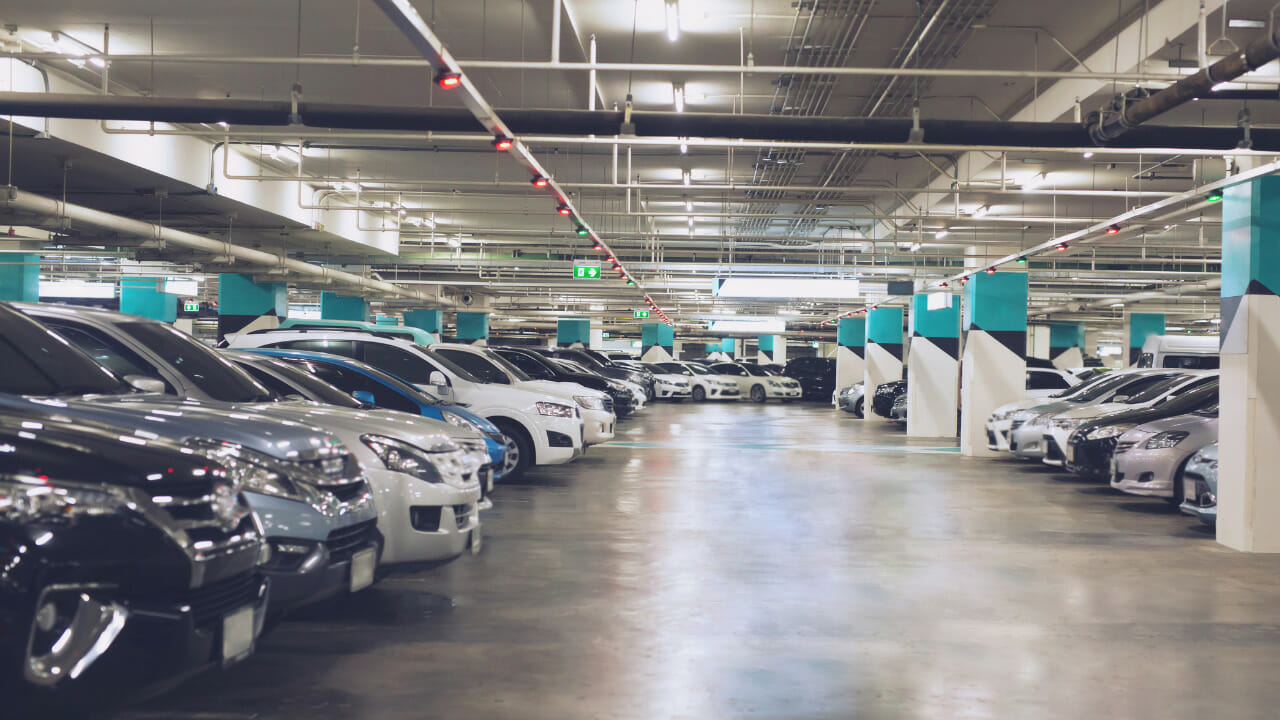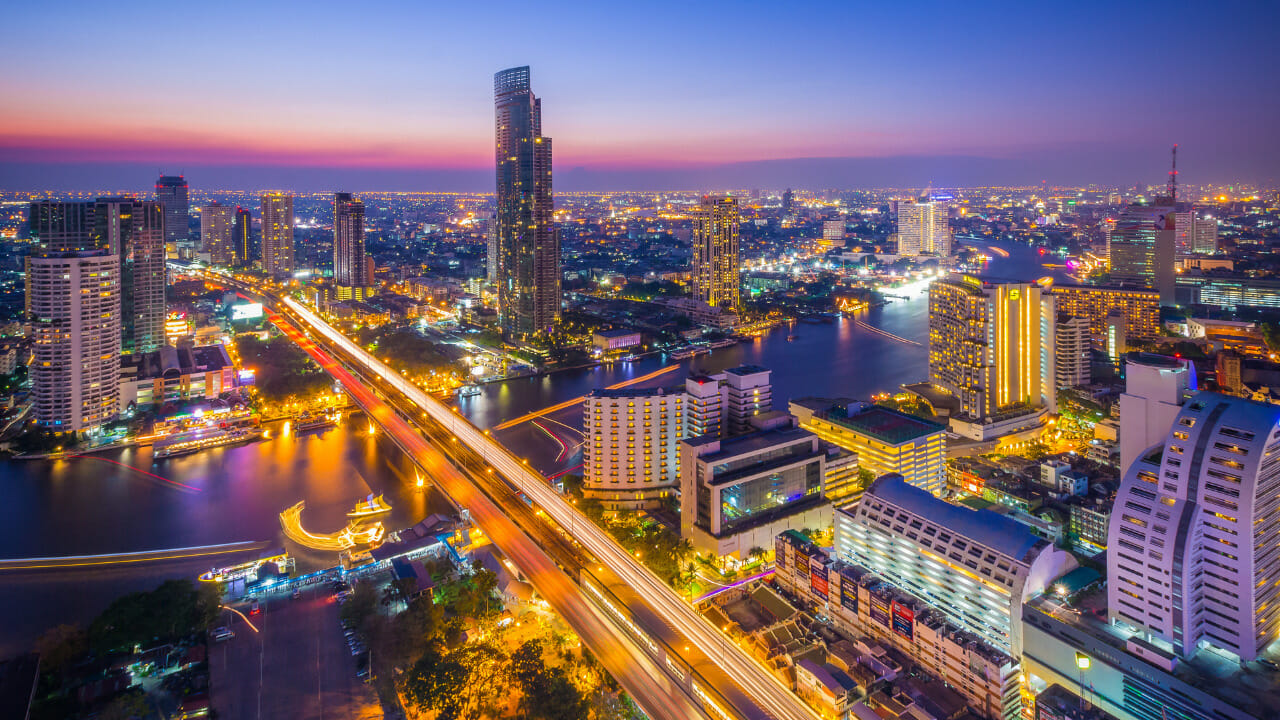“It’s hard to make predictions, especially about the future.” So said American humorist Mark Twain at the turn of the last century, a few years before the outbreak of the First World War, which killed 20 million people, and the Spanish Flu, which killed 50 million people the year after the war ended. Much easier to glance over our shoulders with 20/20 vision on the year that was. But looking back on the economic wreckage of 2020 is something most car park operators and commercial landlords would probably rather not do. So let’s momentarily park Mr Twain’s words of wisdom, and have a go at predicting what 2021 might have in store for the parking sector.
COVID: Pulling the future forward
For many sectors, COVID has been an accelerant, which has brought the future forward by as much as a decade. Trends in many industries which were emerging before COVID – such as a move to online ordering, to video-conferencing or to remote learning – have been put on steroids over the past nine months. Any environment which looks, feels and smells the same as it did forty years ago – be that a university lecture hall, a department store, a movie theater or a car park – is likely to go through structural disruption in a post-COVID world. For the Parking industry, the virus will have long-term structural implications, as outlined below.
Dirt and Distance
COVID has shone a bright light on the places and activities that make a hygiene-sensitive public feel uncomfortable. Even pre-crisis, the car park beneath or behind a building was one of dirtiest, most unpleasant environments many of us entered on a daily basis. Today, that same environment seems even less inviting – particularly if I now have to touch unsanitized ticket machines and greasy pay-stations. Car park operators will need to re-think the customer experience, and “contactless parking” seems to be the new buzzword. But a truly contactless car park experience is only possible if you can drive in, and out, without so much as having to lower your window – let alone take a ticket or handle cash or credit cards. Some technologies, such as licence plate recognition (LPR/ANPR), and Bluetooth gate-opening devices such as the KERB Box™, already provide complete “hands-free” access.
More people in cars, fewer on public transport
One of the factors which has helped car park capacity to rebound in cities across the world, post-lockdown, has been a reluctance by many commuters to hop onto their usual bus, train or metro to work. COVID has demonstrated just how quickly people can change travel habits which had been engrained in their lives for decades. Given the choice between a crowded metro carriage which could contain an infected “super-spreader” passenger, and the privacy of my own vehicle, I’d rather pay extra to park close to my workplace. Many public transport operators have been forced to scale back or discontinue certain routes, with ridership numbers in free fall. Google’s COVID-19 Community Mobility Reports suggest that public transport usage in cities from Melbourne to Moscow, and from Birmingham to Barcelona, has fallen by as much as 70%. It may take years for public transport usage to rebound to Pre-COVID levels.
A different mix of parking products
Global parking software solution KERB, whose app is today used by commuters in over 30 countries, has seen significant shifts in demand for certain parking products: daily parking is up; monthly (“season”) parking is down. But not everywhere. In Western European and Anglo countries, the huge shift towards working from home has seen corresponding falls in the need for five-day-a-week parking: commuters are pre-booking parking only on the days they plan to venture into the city, which could be Wednesday this week, and Monday and Tuesday next week. Things are quite different in much of Asia, where tighter living environments mean working from home is less feasible. Cities such as Bangkok, Kuala Lumpur, Hong Kong and Taipei have seen commuters return to the cities at close to pre-COVID levels. And while there has been little impact on the volume of monthly parkers, KERB has seen a spike in the number of drivers electing to pre-book daily parking.
Contact tracing
Ask a commercial landlord or property manager to identify the owner of the blue Hyundai parked in Bay 24, or the black Mercedes parked next to it, and they’ll shrug their shoulders. In the world of parking – unlike in the world of commercial air travel – “knowing your customer” was never high on the list of operational or marketing priorities. In most cases, it wasn’t even on the list. It may soon need to be, because the world has changed and the visitors entering your building may be carrying a deadly pathogen. By the end of 2020, authorities in many of the world’s cities had mandated that restaurants, cafes and sports venues could only receive members of the public if they digitally checked in on arrival, via a website or a mobile app. But why not the same rules for the office tower or the shopping mall across the street? Knowing precisely who is on your premises, where and when may well become compulsory for many buildings in a post-COVID world. Expect car park access systems which capture the identity of the driver – rather than just a licence plate on the vehicle – to see a surge in popularity in 2021. KYC (“know your customer”) is about to become a much-touted acronym in parking company boardrooms.
Offices, malls, venues
Most commercial buildings located in downtown had a different problem at the start of the year: too many people and not enough parking spaces. For many office towers, shopping malls and exhibition venues the opposite problem now exists. The owners and managers of those buildings are under pressure to find ways to put their under-utilized assets to work. The car park is one such asset, but without a way to get external visitors through the existing car park gates, and without a way to check the identity of those visitors before they are allowed on the premises, the opportunity is limited. Car park automation software such as KERB, and – to some extent – Licence Plate Recognition (LPR/ANPR) technology solves both the ‘access’ and ‘identity-checking’ problems, and – should it ever be required – would allow a building owner to mandate that only visitors who have provided a copy of their COVID vaccination certificate may enter the building. Many airlines have already hinted that, from 2021, flying without a vaccination will not be possible. Publicly-accessible venues and office buildings may be required to reconsider who can safely enter their premises. If not government legislation, expect insurance companies to force their hand.
Consolidation in the commercial car parks sector?
One of the most flagrant examples of a sector which has failed to keep up with the technological advances of the last twenty-five years is Commercial Parking. Car parks didn’t need to innovate because there was always demand for parking in the busiest parts of a city, and customers begrudgingly paid for the surly service and unsavoury environment because they had few other options. That may be about to change, especially in cities where the demand for parking in downtown locations has fallen off a cliff. With significant financial losses already reported for 2020, most car park operators are under pressure to innovate. But innovation is hard when it’s not in your company’s DNA. COVID has opened the door for new leasing and management models to emerge, and for “mobile-first” parking technologies to quickly gain market share. Expect many of the smaller parking apps, and one or two of the biggest commercial car park operators in each city to have succumbed to the virus by the end of 2021.
Conclusions
Stanford economist Paul Romer famously said, “A crisis is a terrible thing to waste”. No one in the parking sector could have seen this crisis coming, nor could they have planned for it. But with more city-wide lockdowns imminent, work-from-home in many countries now the “new normal”, and onerous contact-tracing laws just a government legislator’s signature away, 2021 could be even more challenging for the global parking sector than 2020 was. The alarm bell has rung: it’s time to move away from the “high-friction/low-tech” car park models of the past forty years. Of even greater urgency is for car park owners and operators to know who is parking, where and when. This should not become a debate about privacy (personally identifiable data needs to be handled with the same lofty standards as the banking industry has always been required to handle it). Instead, it will become a question of public safety – something airlines have known only too well for decades.
About KERB
KERB is a global parking marketplace which is redefining the way people park around the world. KERB is opening up tens of thousands of private, off-street parking spaces – in private residential buildings, hotels, retail malls, sports venues and education facilities – in over 30 countries worldwide. KERB also offers an automated car park management software solution which allows car parks and parking garages around the world to increase their operating margins, provide contactless booking, access and payment via the KERB app, and to capture critical data on the WHO/WHERE/WHEN of parkers. Download the KERB app on iOS and Android, or access the KERB website via www.kerb.works to see how KERB can help your organisation. Alternatively, contact us at JustAsk@kerb.works.






